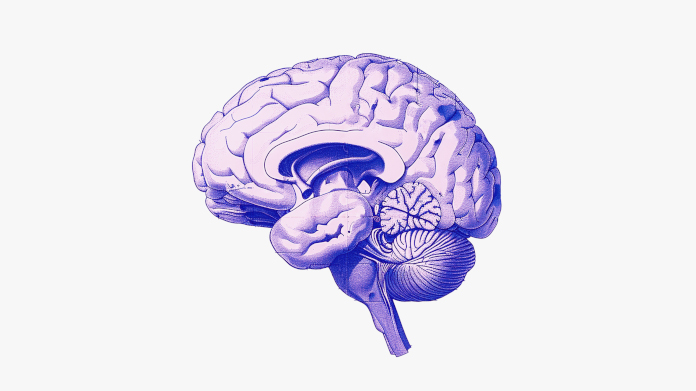Benefits of omega-3: all you need to know about good fats!
The experts at SuperSmart have put together this guide which provides everything you need to know about omega-3: their definition, origins, different types, properties, effects, sources and how much omega-3 the body needs …

How are omega-3 defined?
Often described as ‘good fats’, omega-3 are indeed lipids - fatty substances which offer benefits for our health. Although fats in general have had something of ‘a bad press’ in the past, it is now acknowledged that some fatty acids are better than others. To understand the difference between good and bad fats, we need to consider their chemical structure. Fats vary in terms of their chemical bonds – those with carbon-carbon single bonds are ‘bad fats’, known scientifically as saturated fatty acids. Conversely, unsaturated fatty acids with one or several carbon-carbon double bonds are ‘good fats’ – and these include omega-3!
Why are they termed ‘essential’?
Though omega-3 fatty acids may be known as ‘good fats’, the scientific community actually considers them to be essential for health. This means that we need them in order to function properly and that we have to obtain them from external sources. Despite the importance and multiple benefits of omega-3, the body is indeed unable to produce them itself and must therefore obtain them from either the diet, or from omega-3 supplements!
How were they discovered?
Before we discuss their properties, it’s worth mentioning how omega-3 fatty acids were discovered. For that, we need to go back to the 1950s, to a time when all fats were considered ‘bad’ and associated with numerous diseases, particularly those of the cardiovascular system. Scientists observing the Greenland Inuit were surprised to find how healthy these people were even though they had a significant fat intake. Despite their high consumption oily fish, they had very low rates of cardiovascular disease. Research carried out by the scientists revealed the Inuit’s secret: the fish they ate contained ‘good fats’ – omega-3! This discovery marked the beginning of a succession of international studies on omega-3 which have led to a better understanding of the properties of these fatty acids and confirmed their benefits for protecting the cardiovascular system. Research is still ongoing and continues to produce positive findings. Scientists are realising that the potential of these ‘good fats’ is much greater than they’d thought: it seems omega-3 offer benefits at a number of levels in the body.
What is the purpose of omega-3? What roles do they fulfil in the body?
Just like vitamins and minerals, the body needs omega-3 fatty acids in order to function properly. While it seems we’ve yet to discover all their effects, we do know that they play a role in many of the body’s functions. They are primarily a source of energy, kept in reserve for use at any time. Some omega-3 are not, however, stored by the body but are used for cell growth and function. Critically, they form part of the composition of cell membranes and as such, offer multiple benefits throughout the body. Since they were discovered, studies have focused on their benefits for the cardiovascular system but scientists have also demonstrated their importance for brain health. Furthermore, recent years have seen a growing number of positive results for omega-3, with research identifying benefits at every level in the body: the eyes, skin, hair …
Did you know there are several types of omega-3?
As a result of the many studies conducted on these fatty acids, scientists have identified several types of omega-3 which, while sharing common properties, have different chemical structures. The three main types of omega-3 are:
- alpha-linolenic acid, or ALA, with the chemical formula C18H30O2 ;
- eicosapentaenoic acid or EPA, with the chemical formula C20H30O2 ;
- docosahexaenoic acid or DHA, with the chemical formula C22H32O2.
Although there are several types of omega-3, they are not interchangeable – they are all individually important for our health. It’s worth noting here that a particular feature of ALA is its ability to be used by the body to produce the other forms, although the conversion rate of ALA into EPA and DHA is often insufficient to meet our omega-3 needs. That’s why specific DHA and EPA supplements have been developed, such as SuperSmart’s Super DHA and Super EPA. These supplements are formulated from an omega-3-standardised fish oil, certified Friend of the Sea®. This is a guarantee that the omega-3 fish oil comes from sustainable fisheries that comply with strict quality, conformity and environmental criteria.
What are the body’s requirements for omega-3?
As mentioned, we have to obtain omega-3 fatty acids from external sources. Based on extensive scientific data, public health authorities have established the following recommendations for the various types of omega-3. According to a number of official sources, the recommended amount of ALA for an adult is 1.5-2g a day. The recommended amount of EPA and DHA is at least 500mg a day. Several national health bodies agree that the Recommended Dietary Allowance (RDA) for both EPA and DHA is 250mg a day.
These recommendations are based on a daily calorie intake of 2000 kcal. This means that requirements for omega-3 can vary according to the individual. In addition, they may change depending on our particular stage in life. For example, it’s recognised that women who are pregnant or breastfeeding need more omega-3 than normal. In a notice published in April 2011, the World Health Organization stated that the prenatal period is a time of increased risk for omega-3 deficiency as maternal tissue stores tend to decline as they are used for the developing foetus. The WHO experts add that “marine oil supplements are often recommended to pregnant women to fulfil their omega-3 requirements”.
What are the sources of marine omega-3?
Marine-origin foods are the best source of omega-3 rich foods so it’s a good idea to eat plenty of fish, particularly oily fish such as salmon, tuna, mackerel and sardines. However, for optimal omega-3 intake, fish oils are often the first choice as they have a high content of DHA and EPA :
- salmon oil which contains 18.2g of DHA and 13 g of EPA per 100g ;
- cod liver oil which contains 10.9g of DHA and 8.94g of EPA per 100g;
- sardine oil which contains 10.7g of DHA and 10.1g of EPA per 100g;
- herring oil which contains 4.21g of DHA and 6.27g of EPA per 100g.
Fish oil supplements with a high omega-3 content are a very popular way of obtaining the benefits of these fatty acids. SuperSmart offers a range of omega-3 supplements formulated from premium fish oils obtained from Friend of the Sea®-certified sources to ensure a formulation of the highest possible quality that complies with environmental criteria.
For some years now, krill oil has been increasing in popularity. This is an oil obtained from the tiny crustaceans that live in Antarctic waters and are eaten in large quantities by whales. Krill are naturally rich in omega-3 (EPA and DHA), antioxidants and phospholipids. In other words, krill oil offers a plethora of advantages!
What are the plant sources of omega-3?
Some plant-source foods also contain omega-3, though it’s important to note that plant sources do not contain every type of omega-3, including EPA and DHA. It’s thus important to eat a varied diet in order to meet your body’s needs for these fatty acids.
Among the foods high in omega-3 are certain vegetables, nuts and oils. Products such as those listed below help provide a good intake of ALA in particular:
- linseed oil which contains 53g of ALA per 100g;
- nut oil which contains 11.9g of ALA per 100g;
- rapeseed oil which contains 7.54g of ALA per 100g;
- linseeds which contain 16.7g of ALA per 100g;
- chia seeds which contains 17.8g of ALA per 100g.
Other excellent plant sources of omega-3 include hemp oil, perilla oil, soya oil, camelina oil, pumpkin seeds and wheat germ, as well as almonds, pistachios and hazelnuts, and vegetables such as green cabbage, watercress and lamb’s lettuce.
What are the risks posed by a lack of omega-3?
Given that omega-3 are recognised as being essential for health, it’s no surprise that an inadequate intake can adversely affect how the body functions, hence the establishment by health authorities of recommended intakes for omega-3. However, recent assessments suggest that many people are still consuming too few omega-3, a situation which experts believe is the result of changes in our dietary habits. These days, diets tend to be much higher in omega-6 than omega-3, which produces an imbalance in the body. These two types of fatty acid compete with each other, with a number of consequences. A poor omega 6:omega 3 ratio affects each of their actions and can induce predisposition to certain diseases including cardiovascular and inflammatory conditions.
So what is the right omega 6:omega 3 ratio?
Omega-6 intake is currently thought to be 20-30 times higher than that of omega-3. Studies conducted on the subject indicate that this should be reduced by a factor of 5. Experts believe the ideal omega 6:omega 3 ratio to be 4:1. To achieve this, we need to eat fewer omega-6-rich foods and more omega-3-rich foods. Given that processed foods tend to contain high levels of omega-6, nutritionists recommend minimising our consumption of such foods and increasing that of home-made dishes. Omega-6 are also found in meat and certain vegetable oils such as sunflower and peanut oils.
What are the key points to remember about omega-3?
This article contains a great deal of information on omega-3. In summary, the key points to remember are that these fatty acids offer numerous benefits for our health but that intake of omega-3 remains inadequate. A number of studies have confirmed their effects in the body and several support the use of omega-3 supplementation. Though not exhaustive, the following paragraphs provide a recap of the main benefits of omega-3.
They improve the lipid profile. It is now recognised that omega-3 fatty acids improve the lipid profile. An adequate daily intake helps maintain normal cholesterol levels and reduces blood triglyceride levels. In this way, omega-3 help to prevent certain metabolic disorders and cardiovascular problems: hypercholesterolaemia and hypertriglyceridaemia are two of the risk factors for cardiovascular disease.
They support normal heart function. There are several reasons why the properties of omega-3 are beneficial for heart health. Firstly, they improve the lipid profile and thus help protect against cardiovascular problems. Secondly, studies show they also have a positive effect on blood pressure. A number of public health bodies recognise that an adequate intake of omega-3 supports healthy heart function.
They have a positive effect on mental health. A number of studies in recent years have highlighted the benefits of omega fatty acids on brain health. They form part of the composition of nerve cell membranes, and in addition, adequate omega-3 intake has been shown to offer benefits in treating certain neural disorders. In particular, promising results have been reported in the treatment of depression and forms of dementia such as Alzheimer’s disease. Further studies are underway to evaluate the extent of their benefits for the brain.
They benefit eye health. Extensively-studied, omega-3 have also shown positive effects in preventing AMD or Age-related Macular Degeneration, an eye disease which often develops after the age of 50 and produces progressive loss of vision which can seriously restrict daily life. Studies show that a lack of EPA and DHA may increase the risk of AMD. A course of omega-3 supplements may therefore offer preventive benefits in preserving eye health.
They improve the skin and hair. A number of recent studies have sparked new interest in omega-3. It seems these fatty acids may offer significant potential for the health and beauty of the skin and hair. In particular, researchers have noted beneficial effects in treating skin problems such as psoriasis. Further such studies are ongoing.
Therapeutic uses are under investigation. Scientists are convinced that there is still much to be revealed about the therapeutic potential of omega-3. Findings from a number of studies suggest they could offer positive effects in preventing some forms of cancer, relieve certain inflammatory responses or combat inflammatory diseases such as rheumatoid arthritis, ulcerative colitis and Crohn’s disease.
N. B. Omega-3 continue to be the subject of numerous studies. New findings may either contradict or complement those reported in this article. If in doubt, consult a health professional.
References
- European Commission, EU Register on nutrition and health claims, ec.europa.eu, (Consulté le 27/06/18).
- Anses (Agence nationale de sécurité sanitaire de l’alimentation, de l’environnement et du travail), Les acides gras oméga 3, www.anses.fr, (Consulté le 27/06/18).
- Anses, Ciqual 2017, Table de composition nutritionnelle des aliments, ciqual.anses.fr (consulté le 27/06/2018).
- M. Bardoulat, Les bienfaits de la mer: des algues à la thalassothérapie, les multiples vertus des produits de la mer, Alpen Editions s.a.m., 2007, 95 pages.
- D. Rueff, Oméga 3 (nouvelle édition), Jouvence Maxi-pratiques, Juin 2014, 112 pages.
- E. Hernandez, M. Hosokawa, Omega-3 Oils: Applications in Functional Foods, Elsevier, Aug 2015, 312 pages.
- M. de Lorgeril, P. Salen, Le pouvoir des oméga-3: une nouvelle médecine nutritionnelle, Alpen Editions s.a.m., 2004, 127 pages.
- Anses (Agence nationale de sécurité sanitaire de l’alimentation, de l’environnement et du travail), Actualisation des apports nutritionnels conseillés pour les acides gras, Mai 2011, 327 pages.
- OMS, Supplémentation en huiles d’origine marine pour améliorer l’issue de la grossesse, Avril 2011 (Consulté le 27/06/2018).
- A. P. Simopoulos, The importance of the omega-6/omega-3 fatty acid ratio in cardiovascular disease and other chronic diseases, Exp Biol Med (Maywood), Jun 2008, 233(6):674-88.
- A. P. Simopoulos, Omega-3 fatty acids in inflammation and autoimmune diseases, J Am Coll Nutr, Dec 2002, 21(6):495-505.
- A. P. Jain, K. K. Aggarwal, P. Y. Zhang, Omega-3 fatty acids and cardiovascular disease, Eur Rev Med Pharmacol Sci, 2015, 19(3):441-5.
- T. A. Mori, Omega-3 fatty acids and cardiovascular disease: epidemiology and effects on cardiometabolic risk factors, Food Funct, Sep 2014, 5(9):2004-19.
- Molfino, G. Gioia, F. Rossi Fanelli, M. Muscaritoli, The role for dietary omega-3 fatty acids supplementation in older adults, Nutrients, Oct 2014, 6(10):4058-73.
- G. Grosso, et al., Role of omega-3 fatty acids in the treatment of depressive disorders: a comprehensive meta-analysis of randomized clinical trials, PLoS One, May 2014, 9(5):e96905.
- S. Wu, et al., Omega-3 fatty acids intake and risks of dementia and Alzheimer's disease: a meta-analysis, Neurosci Biobehav Rev, Jan 2015, 48:1-9.
- J. Thomas, et al., Omega-3 Fatty Acids in Early Prevention of Inflammatory Neurodegenerative Disease: A Focus on Alzheimer's Disease, Biomed Res Int, 2015, 2015:172801.
- G. Querques, E. H. Souied, The role of omega-3 and micronutrients in age-related macular degeneration, Surv Ophthalmol, Sep-Oct 2014, 59(5):532-9.
- PC Calder, RF Grimble, Polyunsaturated fatty acids, inflammation and immunity, Eur J Clin Nutr., Aug 2002, 56 Suppl 3:S14-9.
- PM Kris-Etherton, WS Harris, LJ Appel, Fish consumption, fish oil, omega-3 fatty acids, and cardiovascular disease, Circulation, Nov 2002, 106(21):2747-57.
- AP Simopoulos, Essential fatty acids in health and chronic disease, Am J Clin Nutr., Sep 1999, 70:560S-569S.
Keywords
56 Days
Very happy with the order and the…
Very happy with the order and the prompt team's response to an identified issue with my order.
KUQI Fatmir
63 Days
15 + years as a customer
I have been using their products for over 15 years as I find both the quality and pricing excellent.
Del Chandler
65 Days
Good quick delivery
Good quick delivery
Timothy O Shea
66 Days
Good service
Good communication following order. Product came within the time frame and was well packaged. The only confusing thing I found was in checking out. For some reason it is not clear how to do so and the current system should be improved.
Joe O Leary
75 Days
Simple and fast.
Simple and fast.
Nina
76 Days
Great product was definitely what is…
Great product was definitely what is says and arrived on without issue
customer
82 Days
I love reading those product facts on…
I love reading those product facts on Supersmart.com. Effective health products making permanent changes to my blood-work results and testes. However, I also have to order capsules from other websites.
NORDGULEN Olav
84 Days
Great products
Great products Very easy to choose, to order… and to get at home
Federica mastrojanni
87 Days
Service rapide et bons produits
Service rapide et bons produits
customer
88 Days
Good products and fast delivery
Good products and fast delivery
Trusted
93 Days
Does what it says on the can
I believe in this product Made to highest standard The ordering process is straightforward Delivery time prompt Excellent product, excellent service Happy customer ❤️
Sheba Kelleher
98 Days
Excellents produits
Excellents produits. Rien à dire si ce n'est qu'ils sont très chèrs.
MJS_France
100 Days
Very good supplement
Very good supplement
Glaveash
101 Days
Supersmart supplements are really…effective
Supersmart supplements are really effective and have helped me and family members and friends to improve their health including some of us with severe health problems including some with no existing medical treatment.
Anne Georget
102 Days
SuperBig Supersmart
SuperBig Supersmart
Pierre



